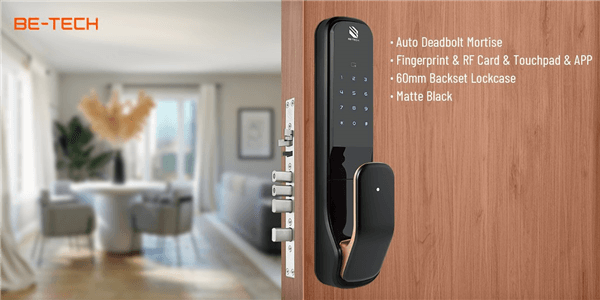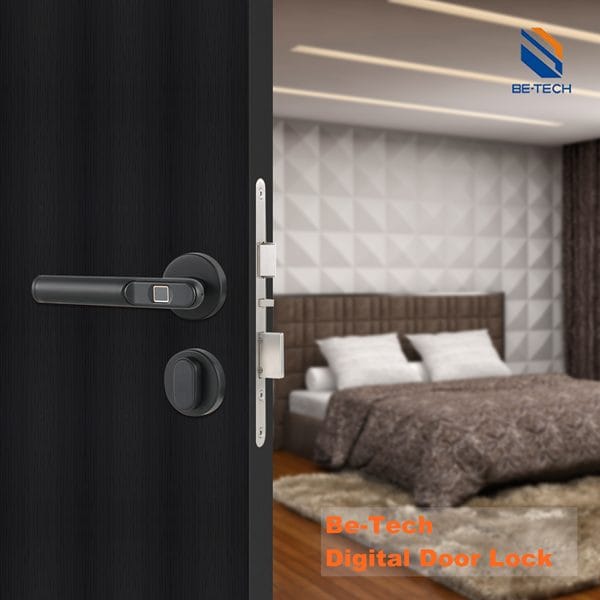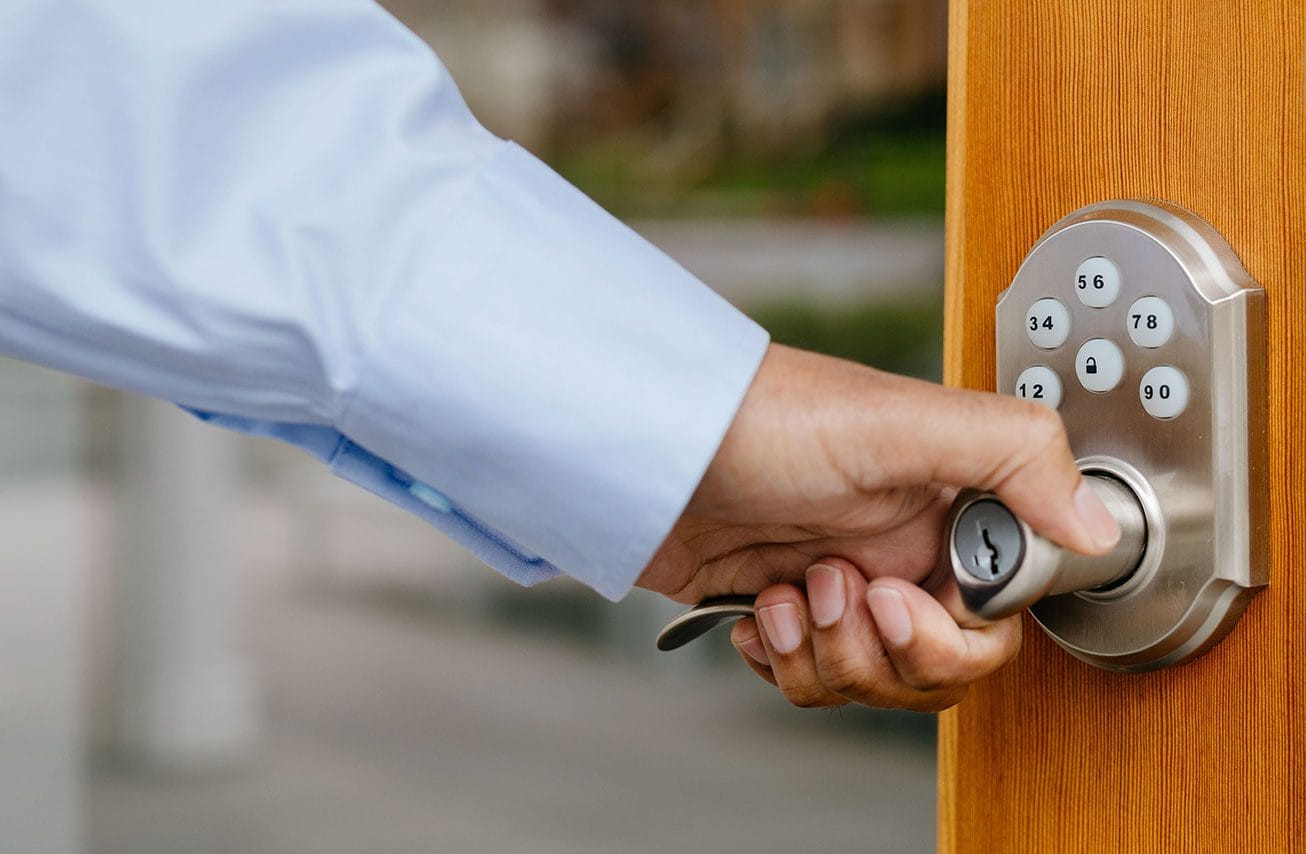In the hospitality industry, security and convenience are paramount for ensuring a positive guest experience. This article explores the differences between electronic hotel door locks and traditional door locks, examining their features, benefits, and implications for hotel management.
1. Technology and Functionality
Electronic Hotel Door Locks:
Keyless Entry: Electronic locks utilize key cards or mobile apps, allowing guests to access their rooms without physical keys. This feature enhances convenience, especially for travelers who may misplace traditional keys. For example, the BE-TECH Wireless Online Electronic Lock offers a seamless check-in experience by enabling mobile access.
Audit Trails: Many electronic locks provide audit trail capabilities, allowing hotel management to track access to rooms. This is crucial for maintaining security and accountability.
Remote Management: Electronic systems can often be managed remotely, enabling hotel staff to unlock doors for guests or adjust access permissions without being physically present.
Traditional Door Locks:
Physical Keys: Traditional locks require physical keys, which can be lost or stolen, posing security risks.
Simplicity: They are straightforward in design and function, with no reliance on batteries or electronic components, making them less prone to technical failures.
2. Security Features
Electronic Hotel Door Locks:
Enhanced Security: Electronic locks typically feature advanced security measures such as encryption and rolling codes, making them more difficult to bypass than traditional locks.
Temporary Access: Hotels can issue temporary access codes for guests, which can be programmed to expire after their stay, providing an additional layer of security.
Biometric Options: Some hotels are adopting biometric authentication, allowing access through fingerprints or facial recognition, which adds a modern touch to security.
Traditional Door Locks:
Mechanical Security: While robust, traditional locks can be picked or bumped, making them less secure than their electronic counterparts.
Limited Control: Once a key is issued, it cannot be easily changed unless the lock is rekeyed, which can be costly and time-consuming.
3. Cost Implications
Electronic Hotel Door Locks:
Higher Initial Investment: The upfront cost for electronic locking systems is generally higher due to the technology involved.
Long-term Savings: They may offer long-term savings through reduced labor costs for managing keys and enhanced security features that can prevent theft.
Traditional Door Locks:
Lower Initial Cost: Traditional locks are typically less expensive to install and maintain.
Higher Replacement Costs: If keys are lost, the cost of rekeying or replacing locks can add up over time.
4. Guest Experience
Electronic Hotel Door Locks:
Convenience: The ability to use key cards or mobile phones for access enhances the guest experience by providing a seamless check-in process. For instance, the Electronic Hotel Lock – Base RFID (9004 Series) is designed for high-traffic environments, ensuring ease of use for guests.
Personalization: Hotels can personalize access codes for guests, adding a touch of modern hospitality.
Traditional Door Locks:
Familiarity: Guests may feel more comfortable with traditional locks, as they are familiar with using physical keys.
Less Technology Dependence: Some guests may prefer the simplicity of traditional locks, especially those who are not tech-savvy.
5. Operational Efficiency
Electronic Hotel Door Locks:
Data Insights: Smart locks generate valuable data that hotel operators can leverage to streamline operations, predict maintenance issues, and optimize energy usage. This can lead to significant operational savings.
Energy Management: Many electronic systems can integrate with energy management systems to adjust room settings based on occupancy, contributing to sustainability efforts.
Traditional Door Locks:
- Manual Management: Traditional locks require manual tracking and management of keys, which can be labor-intensive and prone to errors.
Conclusion
In summary, the choice between electronic hotel door locks and traditional door locks depends on various factors, including hotel budget, security needs, and guest preferences. Electronic locks offer advanced security features and convenience, making them suitable for modern hotels aiming to enhance guest experiences. Traditional locks, while simpler and less expensive, may not provide the same level of security and convenience.









